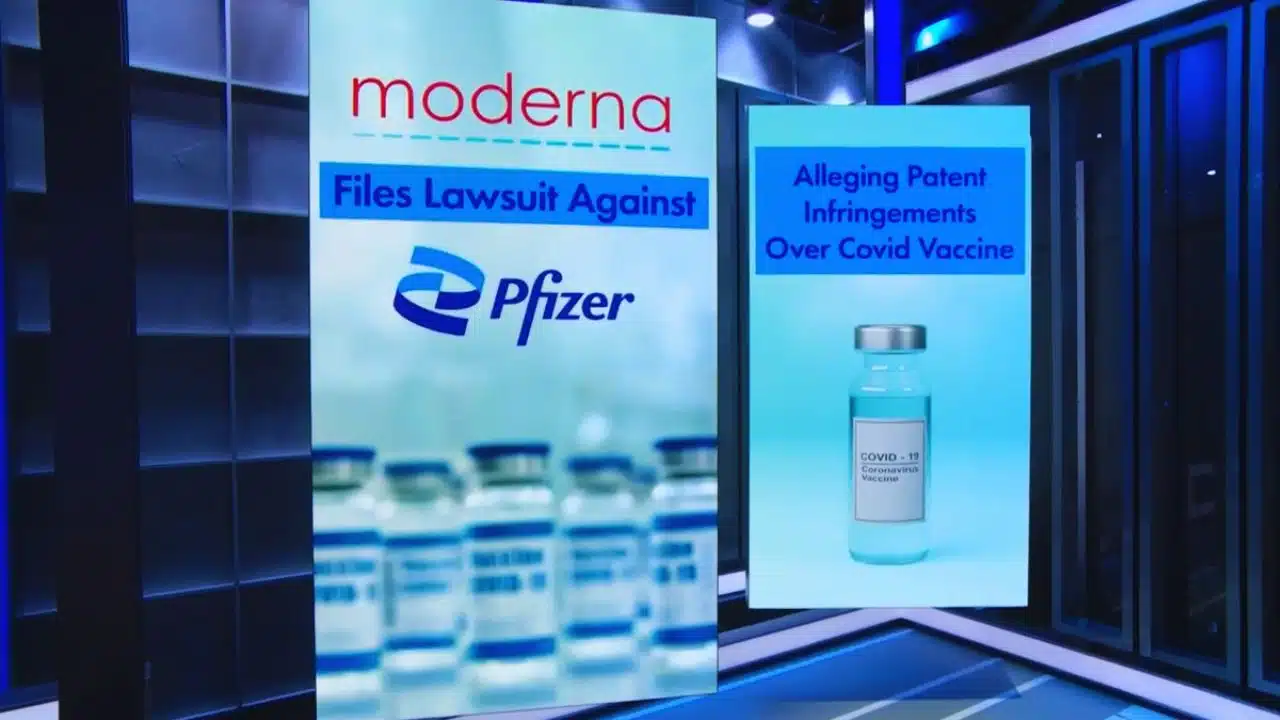Pfizer and BioNTech, the companies behind one of the world’s first successful COVID-19 vaccines, have secured a significant legal victory in a High Court battle against German biopharmaceutical firm CureVac.
The dispute centered around two patents related to the use of messenger RNA (mRNA) technology in coronavirus vaccines.
Mr. Justice Meade sided with Pfizer and BioNTech in the ongoing dispute this Tuesday, ruling that CureVac’s patents were invalid due to insufficiency.
The Legal Challenge
The conflict arose when Pfizer and BioNTech challenged two patents held by CureVac concerning the use of repeated sequences in mRNA technology. This technology is vital for producing vaccines like those developed to combat COVID-19.
Pfizer and BioNTech contended that CureVac’s patents did not provide the necessary ‘technical contribution’ and that the information disclosed in the patents was insufficient.
During a trial in July, their legal team argued that CureVac’s patents were both insufficient and “obvious,” meaning they did not provide enough scientific detail or novelty to be valid.
CureVac, in its defense, maintained that its patents were sound and that they represented a major innovation in the use of mRNA for vaccines.
The High Court’s Decision
After carefully examining the evidence, Mr. Justice Meade issued a 120-page ruling, concluding that CureVac’s patents were not upholdable. He discovered that a significant portion of CureVac’s patents lacked the claimed technical effect.
In simpler terms, the patents did not work as described across most of the claimed inventions. The judge stated, “It is not a case of ‘occasional failures’; the effect is not present across substantially all of the claim.”
This ruling renders the patents CureVac attempted to defend unenforceable, thereby giving Pfizer and BioNTech the advantage in the legal dispute.
The Broader Impact
While the ruling marks a clear victory for Pfizer and BioNTech, it is also significant for the broader mRNA vaccine industry. CureVac’s legal team argued that their patents were crucial to overcoming one of the greatest challenges in mRNA medical applications, but the court’s decision indicates otherwise.
Pfizer and BioNTech’s success in this case may also shape future patent disputes related to mRNA technology, particularly as more companies invest in this field for vaccines and other medical treatments.
What Comes Next?
A follow-up hearing is scheduled for early November to determine the consequences of the ruling. This could involve decisions on damages, future patent use, or the broader impact on intellectual property in the biotech sector.
The legal team for Pfizer and BioNTech, under the direction of Tom Mitcheson KC, hinted at the possibility of additional legal action regarding CureVac’s EP949 patent earlier in July, so the case isn’t entirely over.
Mitcheson also argued successfully against Moderna’s request for an appeal on the EP565 patent, claiming that Moderna was merely trying to “re-argue the case.
The Broader Vaccine Landscape
Pfizer and BioNTech’s COVID-19 vaccine made use of ground-breaking mRNA technology, which hastened the creation of a life-saving vaccine.
Moderna’s Spikevax vaccine, which was the third approved for use in the UK, also uses mRNA technology, alongside the more traditional Oxford/AstraZeneca vaccine.
This court victory for Pfizer and BioNTech solidifies their role as major players in the development and distribution of COVID-19 vaccines, while the ruling against CureVac raises questions about future patent disputes in the rapidly advancing field of mRNA-based medicine.





































